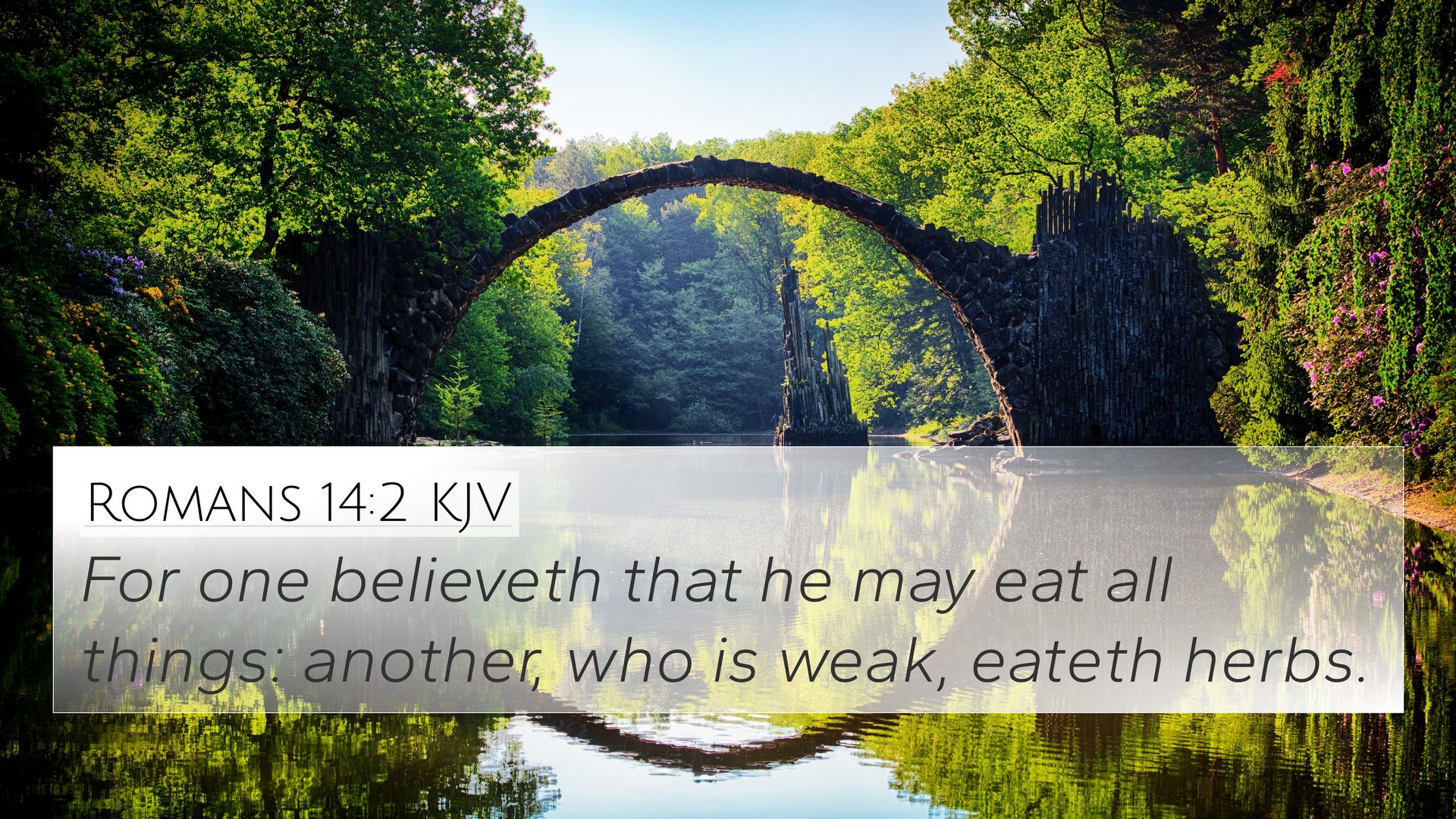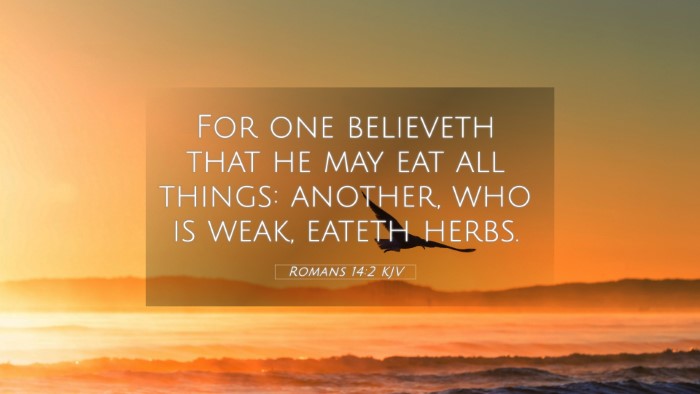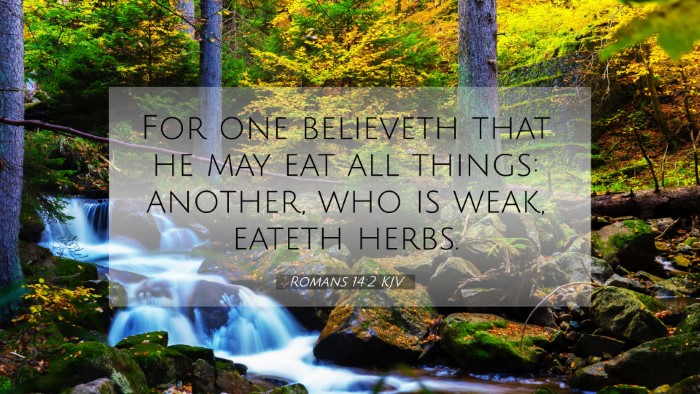Old Testament
Genesis Exodus Leviticus Numbers Deuteronomy Joshua Judges Ruth 1 Samuel 2 Samuel 1 Kings 2 Kings 1 Chronicles 2 Chronicles Ezra Nehemiah Esther Job Psalms Proverbs Ecclesiastes Song of Solomon Isaiah Jeremiah Lamentations Ezekiel Daniel Hosea Joel Amos Obadiah Jonah Micah Nahum Habakkuk Zephaniah Haggai Zechariah MalachiRomans 14:2 Similar Verses
Romans 14:2 Cross References
For one believeth that he may eat all things: another, who is weak, eateth herbs.
Uncover the Rich Themes and Topics of This Bible Verse
Listed below are the Bible themes associated with Romans 14:2. We invite you to explore each theme to gain deeper insights into the Scriptures.
Romans 14:2 Cross Reference Verses
This section features a detailed cross-reference designed to enrich your understanding of the Scriptures. Below, you will find carefully selected verses that echo the themes and teachings related to Romans 14:2 KJV. Click on any image to explore detailed analyses of related Bible verses and uncover deeper theological insights.
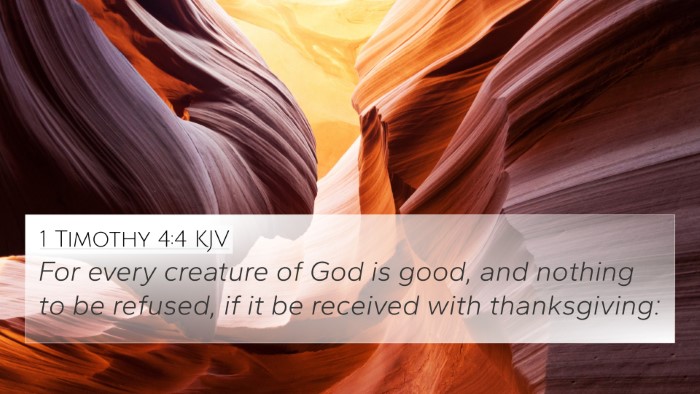
1 Timothy 4:4 (KJV) »
For every creature of God is good, and nothing to be refused, if it be received with thanksgiving:

Romans 14:22 (KJV) »
Hast thou faith? have it to thyself before God. Happy is he that condemneth not himself in that thing which he alloweth.
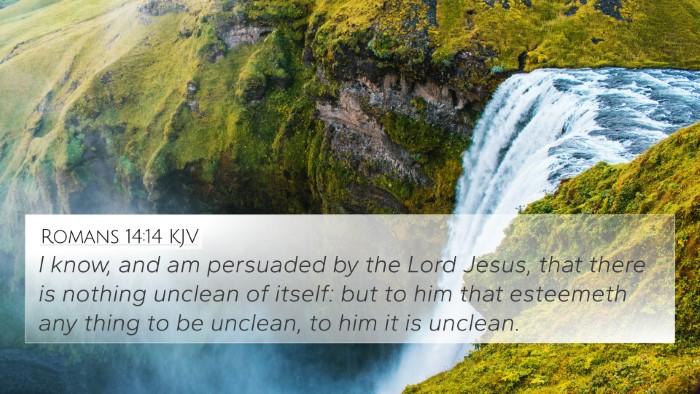
Romans 14:14 (KJV) »
I know, and am persuaded by the Lord Jesus, that there is nothing unclean of itself: but to him that esteemeth any thing to be unclean, to him it is unclean.
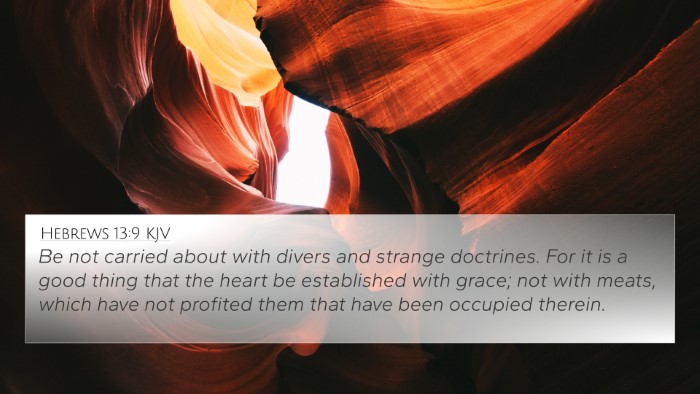
Hebrews 13:9 (KJV) »
Be not carried about with divers and strange doctrines. For it is a good thing that the heart be established with grace; not with meats, which have not profited them that have been occupied therein.
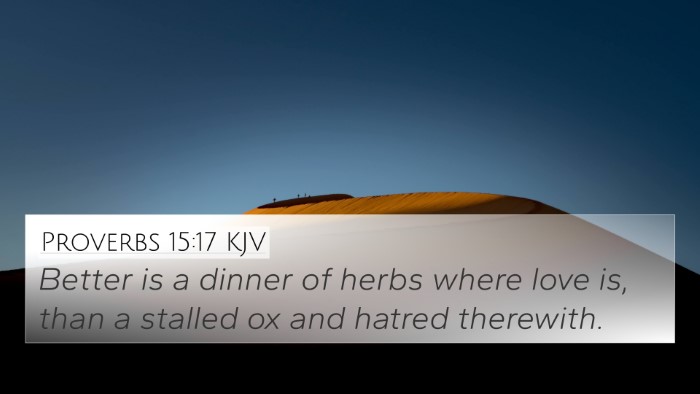
Proverbs 15:17 (KJV) »
Better is a dinner of herbs where love is, than a stalled ox and hatred therewith.
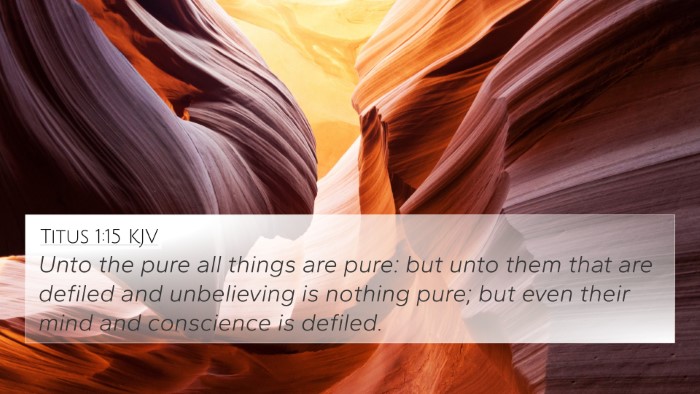
Titus 1:15 (KJV) »
Unto the pure all things are pure: but unto them that are defiled and unbelieving is nothing pure; but even their mind and conscience is defiled.
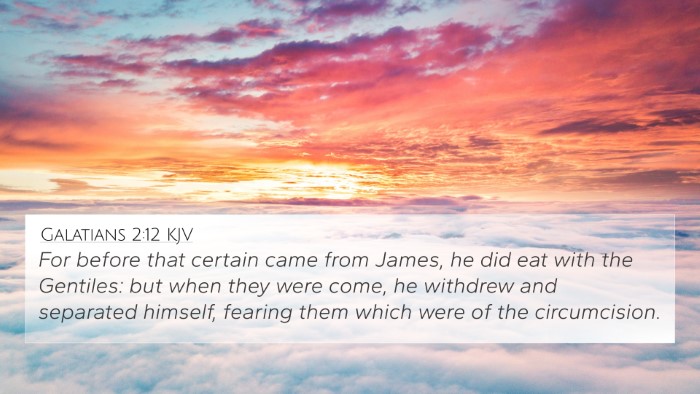
Galatians 2:12 (KJV) »
For before that certain came from James, he did eat with the Gentiles: but when they were come, he withdrew and separated himself, fearing them which were of the circumcision.
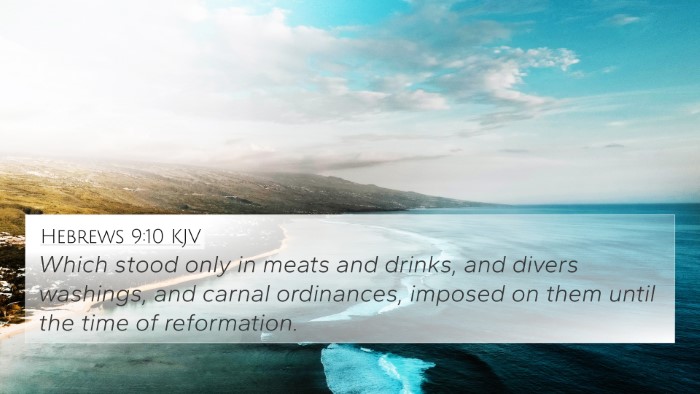
Hebrews 9:10 (KJV) »
Which stood only in meats and drinks, and divers washings, and carnal ordinances, imposed on them until the time of reformation.
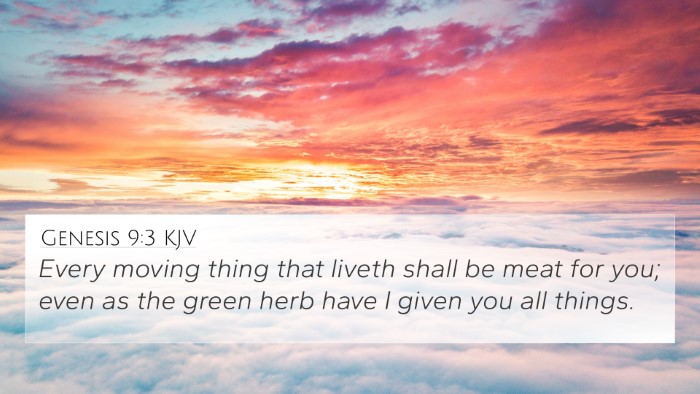
Genesis 9:3 (KJV) »
Every moving thing that liveth shall be meat for you; even as the green herb have I given you all things.
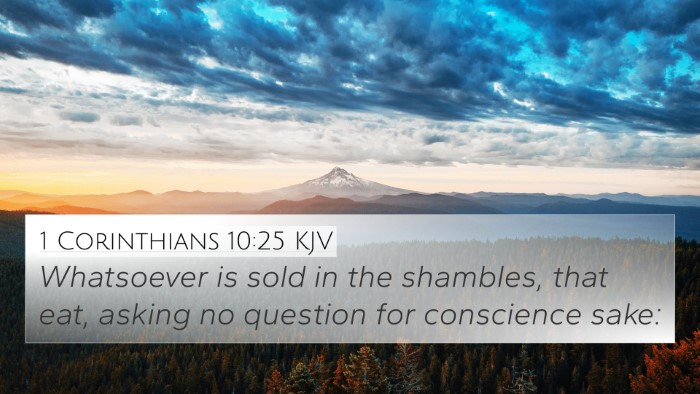
1 Corinthians 10:25 (KJV) »
Whatsoever is sold in the shambles, that eat, asking no question for conscience sake:
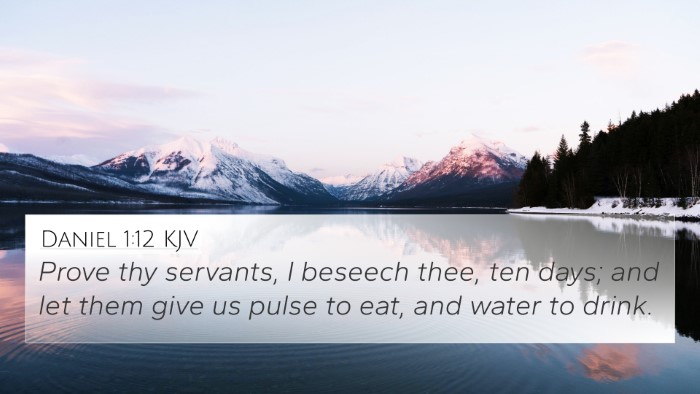
Daniel 1:12 (KJV) »
Prove thy servants, I beseech thee, ten days; and let them give us pulse to eat, and water to drink.
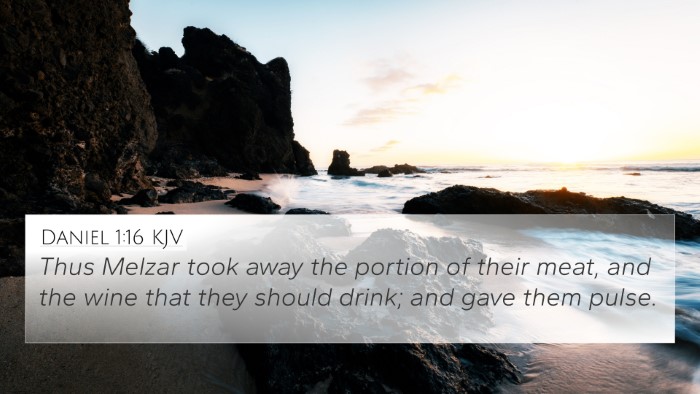
Daniel 1:16 (KJV) »
Thus Melzar took away the portion of their meat, and the wine that they should drink; and gave them pulse.
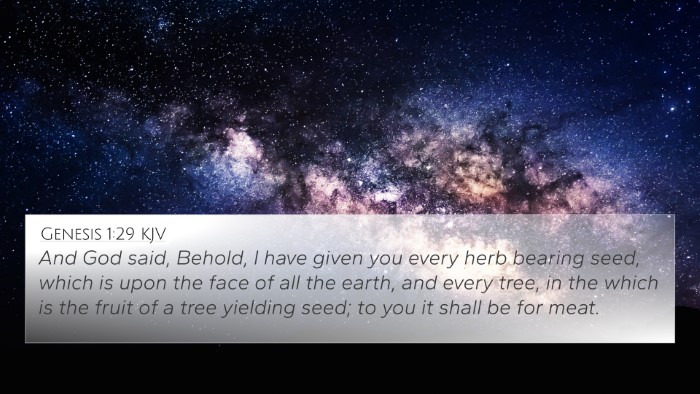
Genesis 1:29 (KJV) »
And God said, Behold, I have given you every herb bearing seed, which is upon the face of all the earth, and every tree, in the which is the fruit of a tree yielding seed; to you it shall be for meat.
Romans 14:2 Verse Analysis and Similar Verses
Understanding Romans 14:2
Verse: "For one believeth that he may eat all things: another, who is weak, eateth herbs." - Romans 14:2
Summary of Romans 14:2
This verse addresses the differences in dietary practices among believers, emphasizing the diversity in faith and conviction within the Christian community. The apostle Paul presents two types of Christians: those with strong faith who feel free to eat any food and those who are more limited in their choices, adhering to a vegetarian diet due to their convictions. This illustrates the broader theme of personal liberty in religious practices and mutual respect among believers.
Commentary Insights
Matthew Henry's Commentary
Matthew Henry notes that the distinction between the strong and the weak in faith is pertinent. The 'strong' Christians understand that all food is clean and permissible under the new covenant, reflecting a broader freedom in Christ. In contrast, the 'weak' are those with scruples that cause them to abstain from certain foods, keeping traditions that bind their conscience. This disparity calls for tolerance and understanding among believers.
Albert Barnes' Commentary
Albert Barnes highlights that the verse illustrates the principle of personal conviction in matters of conscience. He emphasizes the importance of not judging others based on dietary choices. Barnes suggests that these differences should encourage believers to live in harmony and show charity towards one another, emphasizing that faith should guide actions, rather than mere adherence to rules.
Adam Clarke's Commentary
Adam Clarke elaborates on the cultural context, explaining that Jewish Christians, accustomed to dietary laws, might struggle with the idea of eating foods deemed unclean. He points out that Paul is advocating for a compassionate approach where stronger believers support the weaker ones, respecting their convictions. Clarke believes that this principle can extend to various practices within the church, where love and understanding should prevail.
Cross References
- 1 Corinthians 8:8: "But meat commendeth us not to God: for neither, if we eat, are we the better; neither, if we eat not, are we the worse." - This reinforces the idea that dietary practices do not determine one's relationship with God.
- Galatians 5:1: "Stand fast therefore in the liberty wherewith Christ hath made us free, and be not entangled again with the yoke of bondage." - This speaks to the freedom believers have in Christ, which should not lead to judgment of others.
- Colossians 2:16-17: "Let no man therefore judge you in meat, or in drink, or in respect of an holyday, or of the new moon, or of the sabbath days..." - Highlighting the futility of judging based on dietary restrictions.
- Matthew 15:11: "Not that which goeth into the mouth defileth a man; but that which cometh out of the mouth, this defileth a man." - Illustrating that internal purity is more important than external observance.
- Romans 15:1: "We then that are strong ought to bear the infirmities of the weak, and not to please ourselves." - This emphasizes the responsibility of stronger believers towards those with weaker faith.
- Hebrews 10:24-25: "And let us consider one another to provoke unto love and to good works..." - Encouraging mutual consideration among believers.
- 1 Thessalonians 5:14: "Now we exhort you, brethren, warn them that are unruly, comfort the feebleminded, support the weak, be patient toward all men." - Advising patience and support in the community of believers.
Thematic Connections
Romans 14:2 invites reflection on various themes within the scripture:
- Freedom in Christ: The verse underscores the discussion of liberty and responsibility that appears throughout Paul’s letters.
- The Importance of Unity: The call for mutual respect and love among believers is echoed in Galatians and Ephesians.
- Personal Conscience: The emphasis on individual belief and conviction connects to further teachings on the conscience in Romans 14 and 1 Corinthians.
- Judgment and Grace: The theme of refraining from judging others’ faith choices is prevalent in the Sermon on the Mount (Matthew 7:1-5).
Conclusion: Romans 14:2 reminds believers that their faith journey may look different, and this diversity should be embraced within the body of Christ. The insights from public domain commentaries enrich our understanding of the verse, guiding us toward love and acceptance within our faith communities. By exploring cross-references and thematic connections, we deepen our comprehension of this scripture in relation to the entirety of the Biblical narrative.
